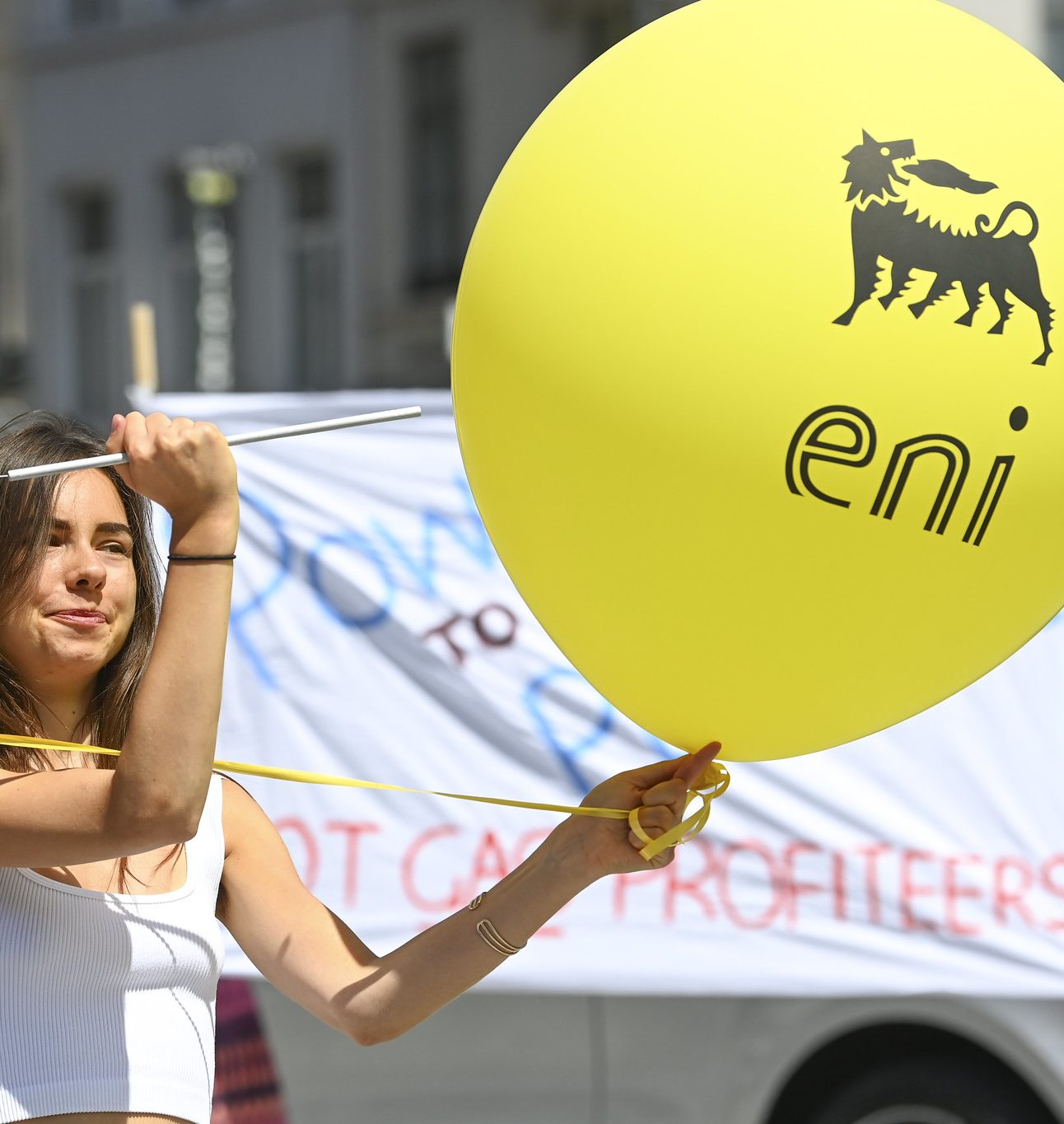
Eni
Our analysis reveals how Eni’s climate plans fail to align with international commitments to phase out fossil fuels and to limit global temperature rise to 1.5ºC.
How does Eni stack up?
Table Key
- Grossly insufficient
- Insufficient
- Partially aligned
- Close to aligned
- Fully aligned
Ambition: Drilling for More Oil and Gas
Eni does not have a date set to stop exploration, stop approving new extraction projects, or end oil and gas production. Eni has not set a rapidly declining fossil fuel production target, and therefore its plans are dangerously out of step with climate goals.
Despite the reality of the climate crisis, Eni confirmed in 2024 that it plans to continue increasing its oil and gas extraction by three to four percent per year through 2027. Eni touted discovering 900 million new barrels of oil and gas in 2023.
It’s unthinkable to approve any new fossil fuel development when the majority of oil, gas, and coal in existing fields and mines must stay underground to keep warming to globally agreed limits.
Historical Responsibility
-
11 th
Eni's Rank
for most cumulative climate pollution in history among ALL investor-owned companies.
Source: Carbon Majors
-
9.1 billion
Tonnes of CO2e Pollution
linked to Eni’s fossil fuel production since 1950.
Source: Carbon Majors
-
$ 400 billion
Amount Eni Would Owe
if the company were held partially accountable for the climate loss and damages caused by its pollution since 1985 alone.
Source: Climate Analytics
Eni CEO, Claudio Descalzi“...the reality is that there is no way at the moment to stop oil and gas…”
Integrity: Failing Climate Targets
Do Eni’s actions add up to a credible pathway to 1.5°C?
While Eni has set a 2050 “net zero” target covering its climate emissions on a full equity share basis, with interim targets for 2030, 2035, and 2040, they are not backed up by near-term ambition or credible oil and gas phase-out plans.
Eni has no commitment to reducing total climate pollution caused by burning the oil and gas it produces and sells in the critical years before 2030.
Eni has not committed to phase out oil and gas production at a 1.5°C-aligned pace.
To meet its climate targets, Eni plans to rely heavily on the ‘net’ in ‘net zero’ – investing in carbon capture and carbon offsets, which may prolong the life of fossil fuels, have a long track record of failure, and perpetuate injustice. Instead, oil and gas companies should take responsibility for reducing their oil and gas extraction and sales as rapidly as possible.
Meanwhile, there is evidence that Eni is lobbying against climate action, greenwashing, and otherwise maneuvering to undermine the energy transition.
At a glance
-
Up to 85 million
tonnes of CCS plus carbon offsets in 2050
Instead of phasing out oil and gas, Eni plans to reach “net zero” in 2050 through heavy reliance on dangerous distractions like CCS and offsets.
Source: Read our report
-
8
Industry associations lobbying against climate action
Eni is a member of 8 industry associations that are “Misaligned” on climate policy as of May 2024.
Source: Influence Map
People-Centered Transitions: Inadequately Preparing
While many companies have co-opted the language of ‘just transition’ from labor and climate justice movements in recent years, Eni rates “Insufficient” on its real-world just transition plans and on upholding human rights.
Eni’s climate plans lack meaningful detail regarding how it will engage with working people and their communities to implement just transition measures.
Eni’s human rights policy still lacks meaningful safeguards to uphold Indigenous Peoples’ rights to Free, Prior, and Informed Consent.

COVA Contro:
Residents in Basilicata, near Eni oil production in the Val d’Agri and the Val Basento in Italy, have formed an association called Cova Contro, opposing the company and documenting environmental impacts. They allege that the company’s facilities have caused health issues in their communities and that the company’s facilities have poor labor practices. Eni contends that studies it paid for indicate no adverse health impacts.
Support the campaign to stop Eni and its partners in Mozambique!
The Say No to Gas! in Mozambique campaign aims to bring an end to the gas industry in Mozambique, focusing on the region of Cabo Delgado in northern Mozambique. Can you support their call?

